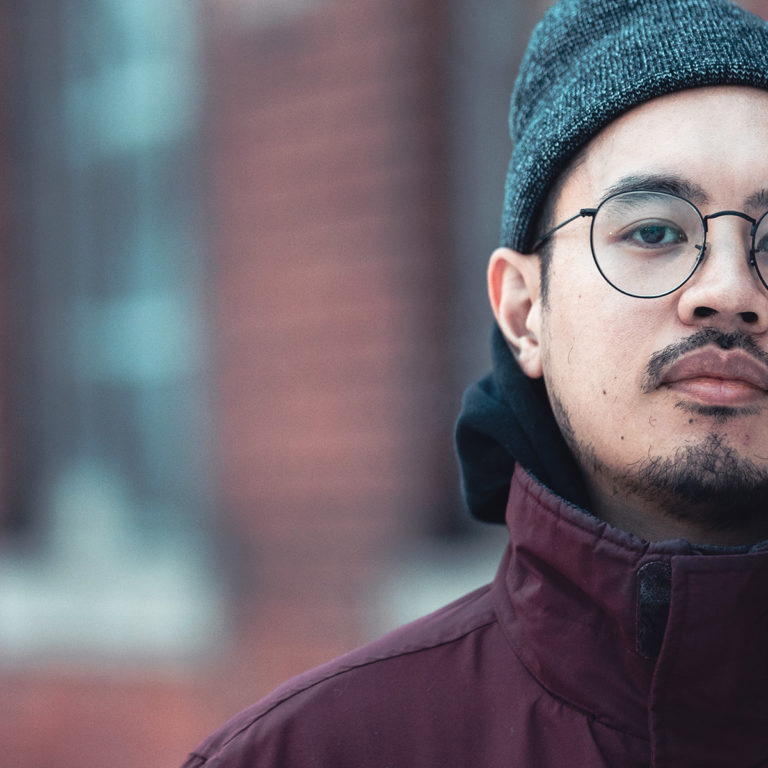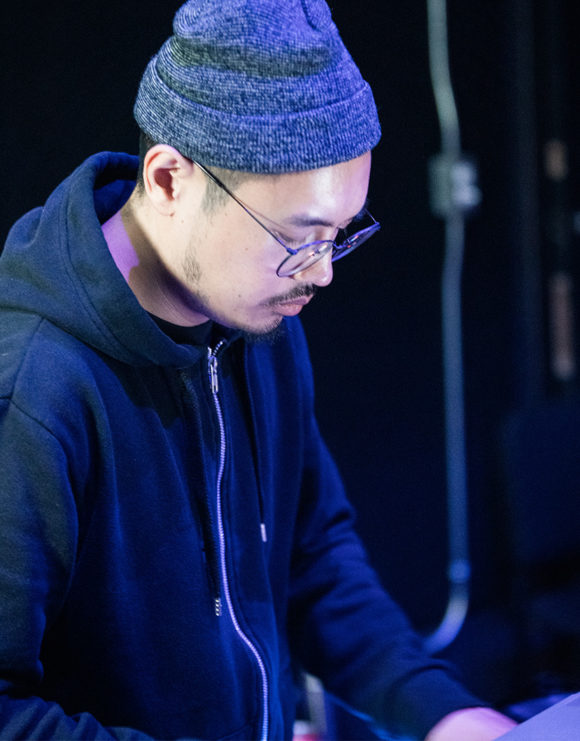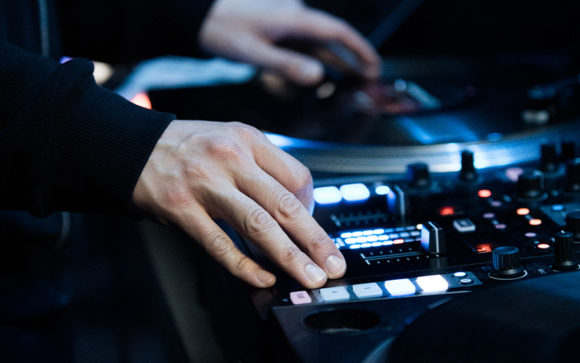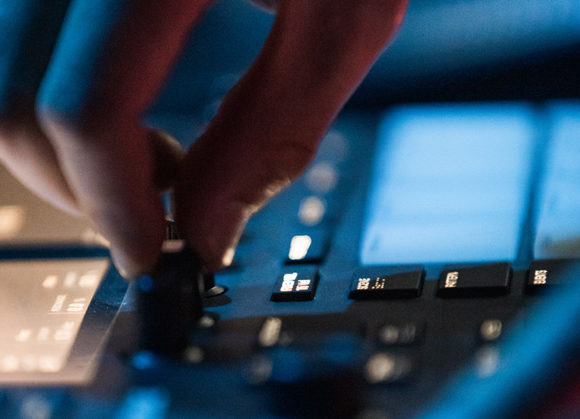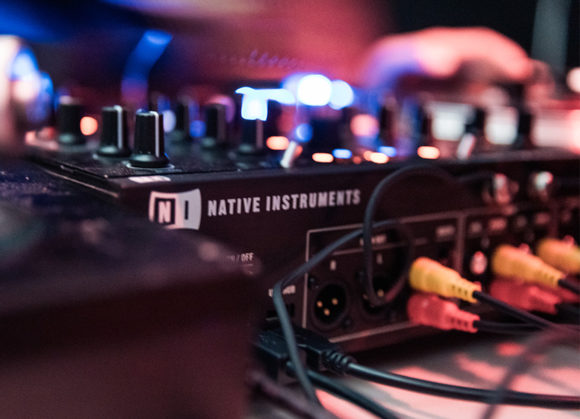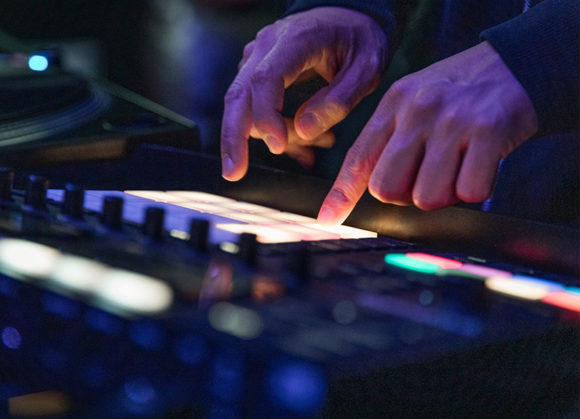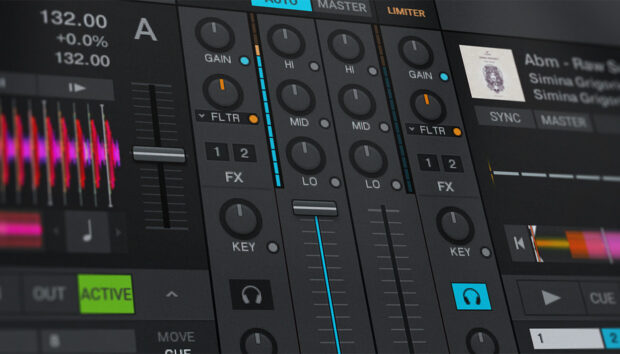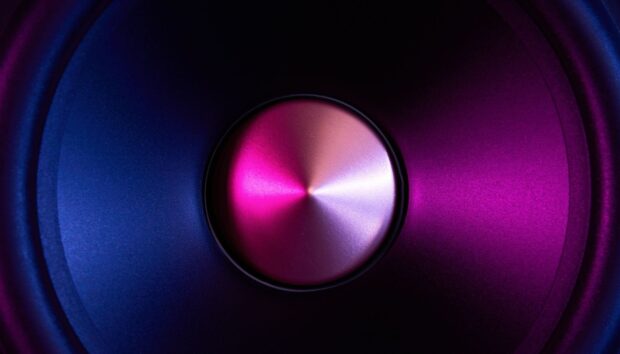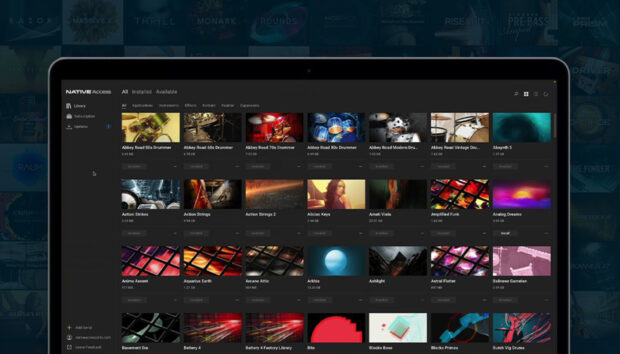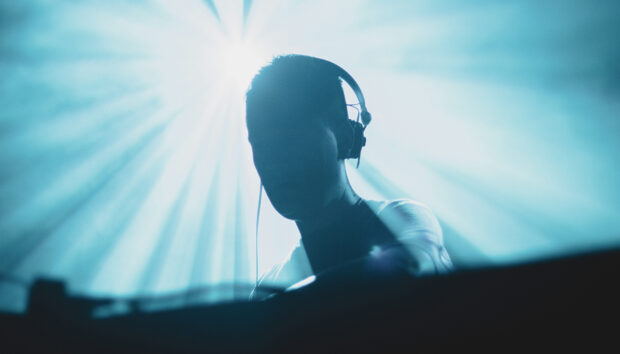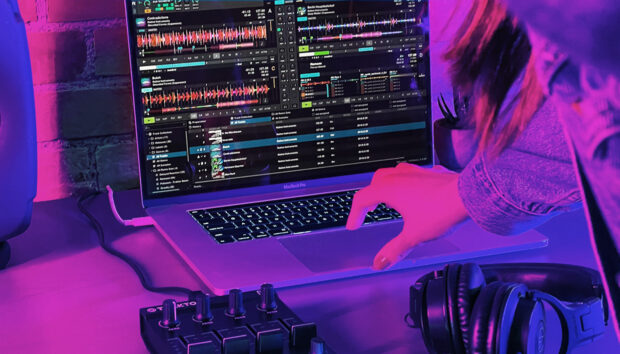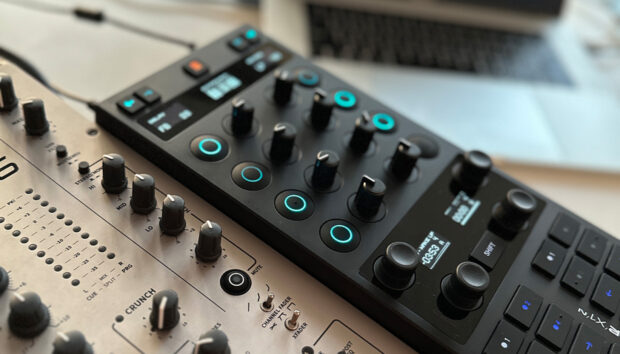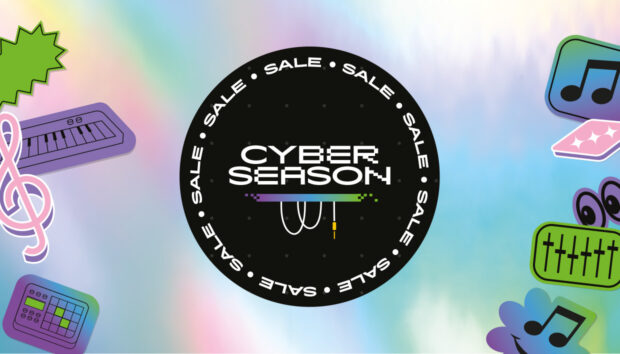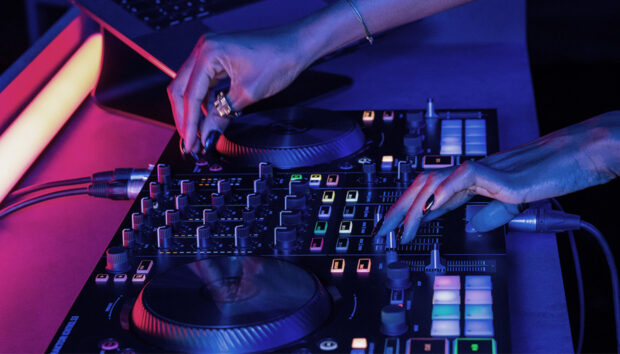Terence Lo (TLo) has been a turntablist in the Toronto scene since DJing the traditional ‘old-school way’ was the only way to play. The experiences of DMC battles and performing live have helped develop him into not only a world class DJ but also an extremely proficient producer.
From a young age, TLo was into all elements of hip hop — DJing, rap, graffiti, breakdancing etc. — and had been trying to decide which one would suit him best. After being exposed to DJ culture through the various crews and battles at high school, he eventually found that path that suited him best. This was further solidified after watching the famous DJ battle scene in the movie Juice, which led to countless hours of beat-juggling, scratching, and record digging.
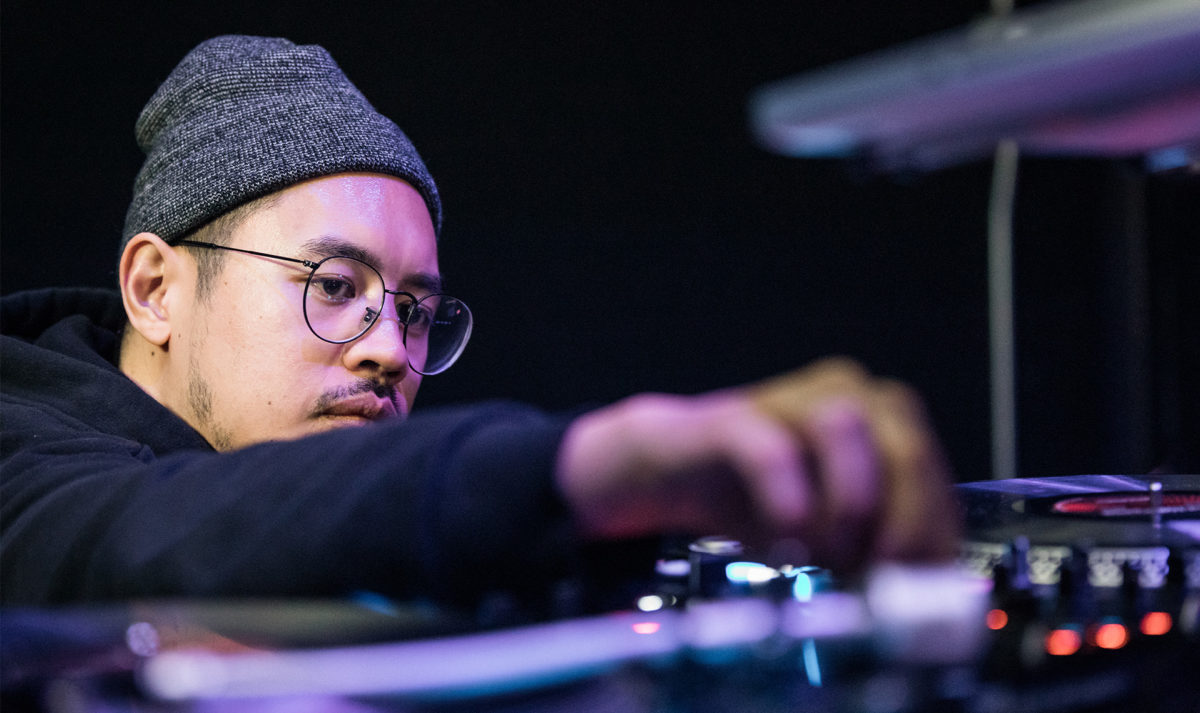
What changes have you seen in the battling world since you first started?
A lot of changes have happened since then. Now, with timecode vinyl setups DJs have been able to produce their own routines for the battle arena. Prior to timecode, I had to dig and find records that fit musically with each other and purchase multiple copies when available because the needle would wear out the vinyl overtime. I had to build my sound with music that was only pressed on vinyl. With this limitation, it forced us turntablists to get creative with the vinyl we had. Also with our touch and interaction, as the vinyl had to be much more stable because it would be susceptible to skipping.
What made me a fan of seeing battles was watching the DJs having to change records quickly, flip the vinyl, and drop the needle. Even when things would go unplanned due to needle-slips or markers shifting, seeing how the DJ recovered would show how determined they were live. We see a lot less of this since timecode was introduced.
Now, we can battle with sounds and compositions that we have created ourselves if we choose to, and needle-skipping is not much of an issue.
Coming from a turntable-battle, DJ background I can essentially still rock a crowd with a two-channel mixer, turntables, and vinyl, but going digital has allowed me to expand on my ideas and keep things a little more compact and stable.
Were there challenges taking something artistic like scratching into a competitive world?
I think whenever you subject your art to be critiqued by a panel of judges, you have to be ready for a wide range of feedback, be it favourable, constructive or negative.
I remember the term “politics” was always thrown around when it came to results by judges in a battle. Unless it was a clear decision, competitors would always complain about politics affecting the results. The results can vary from battle to battle based on the judging panel’s tastes and preferences.
You’ve been touring with the rapper Shad for a few years now. How did you guys link up?
We actually went to the same university [Wilfrid Laurier]. The hip hop community at school was small at the time. I was scoring highly the DMC Regionals and had a show on the campus radio station where I would do live hip hop mixes and invite other DJs for open scratch sessions live on air. Someone told me about Shad and we eventually linked up and headed over to my apartment where I had my setup. I threw on some instrumentals and he just started freestyling. He would go on for what felt to be about an hour without any stutter. He was referencing things in the freestyle that we were talking about earlier that day and intertwined it with his social-political opinion without cursing. Something is he known for to this day. It was pretty damn impressive and he asked me to be a part of his first album. Shortly after we graduated I won the Canadian DMC DJ competition, Scribble Jam [in Cincinnati], and other DJ Battles. We then hit the road on tour and have been rockin’ ever since.
You’re known for battling using the actual records the sounds come from, rather than battle records. What caused the move to timecode?
When it comes to production and making music, 95% of the time I still use original vinyl as the sample source material. My experience with battling and DJing only involved using real vinyl records. But since touring, timecode vinyl has proved to be more reliable and is easier to transport.
Around the time when timecode vinyl became available to the public, I went on tour with Shad as his DJ and this worked out great. I could run the instrumentals for our set from WAV. files that I would edit instead of having to press performance instrumental vinyl. DJing with bands live on stage can have its challenges; with the MC jumping on stage and the bass cabinets under the stage shaking, it would rattle the turntables and affect the connection between the needle and vinyl. Having a digital setup allowed for much more stability in these situations.
You just finished the first leg of the Shad tour. Can you talk us through your live setup?
Right now I’m using a setup of two turntables, the Traktor Z2 mixer, Maschine, and an audio interface. It’s sort of a hybrid setup where I’m running songs off the laptop, through Traktor, and Maschine, while running a click to the band.
What does using this rig allow you to do live vs. the traditional two-turntables and a mixer?
I play instrumentals, mix and scratch using the turntables and have been able to incorporate Maschine while playing live. We perform some tracks solely with Maschine and the band, while I incorporate the built-in effects. I’m also able to use Maschine as an instrument with the live band. It depends on the song and the way we want to present the music, but Maschine has proven to be a versatile tool for on-stage performance.
We saw that you’re using MASCHINE for your productions. How does building the tracks in MASCHINEchine make it easier to take these songs on stage?
It really allows me to have total control over all the sounds, I can apply effects to stems, mute groups, and add percussion based on the live band setup – all in realtime. It’s a lot more efficient as well when it comes to transitioning songs from the studio to the stage.
What are the key skills you need for working with an artist and a band vs. battling?
For the most part, working with a band is a team effort where every instrument and player has a role. The band’s goal is to provide the backing music for the main artist and this requires a lot of preparation, technical knowledge, and talent to execute. The lead artist has a vision of how the show should sound and be presented and I am required to coordinate with the band and achieve this artistic vision.
Preparing routines for battles requires just as much preparation, but this is more of a solitary venture. As the sole artist, creator and performer, I would have to envision the performance, create the compositions, practice routines, and present it to an audience.
Each role requires musical talent and the ability to adjust the live performance based on the energy of the crowd at the time.
Is there a difference between DJing songs you’ve produced for Shad vs. tracks made by other producers such as Kaytranada or 2oolman from A Tribe Called Red?
Aside from the unique style from each producer, there isn’t much difference. If the producer offered up all the stems for a track, it would allow us (the band) on stage to have more play with the arrangement. In some cases, producers would hand over all the stems to the artist and in other cases, those are not available so we work with what we have.
Future of DJing
With all of the new technology coming out seemingly each month, how do you see the art of DJing changing in the future?
I think technology makes preparing and practising for DJ sets much more efficient. In my opinion, it all comes down to preparation and practice. All the technology in the world isn’t going to develop someone’s musical taste and talent; it all boils down to a person’s talent, skill, and dedication when it comes to executing those ideas. Technology won’t do the work for you, but we as creators and artists can harness technology to assist us in executing those ideas more efficiently.
Coming from a hip hop background I personally see a shift to more transparent DJing; less pre-produced sets and a step back to more live transitions when it comes to mixing.
What drives you to keep building on your skills and pushing yourself technically?
In my role as a turntablist, the idea of making music using records and two turntables always pushed my creativity. The limitation of technology forced me to push myself technically and build my skills to achieve a sound and style that I envisioned.
In the present day, we have access to so much technology and software, anything musically imaginable can be created with a computer. I find this a blessing and a curse when it comes to creating. I like to start with an idea in its rawest form and then add layers to it. As a hip hop producer coming from an MPC background, using Maschine has allowed me to still maintain a raw workflow and then build on it using software instruments.
This is the workflow I apply to my musical endeavours whether it be collaborating in a band setting, creating my own music or creating music for other mediums (TV, commercial, other Artists).
I also try to study the greats in production and turntablism. By knowing the history of the genre of music that has influenced me, I can use that wisdom when it comes to building my own skills and technical prowess. I also consistently jam with other musicians and scratch artists to learn and exchange musical ideas.
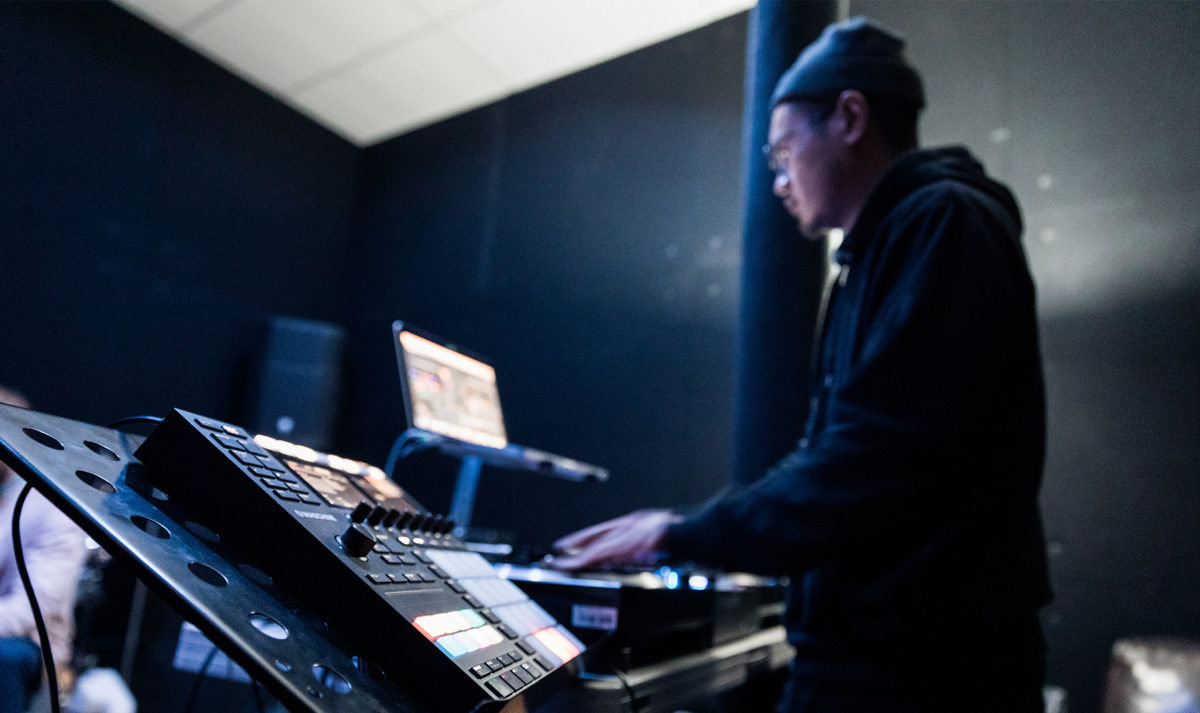
You’ve bounced between battling, live performance and the beat-tape world. What are the key skills you’ve learned from each?
Battling taught me how to prepare and practice for a performance, how to be comfortable performing on stage, how to react quickly if any technical mishaps were to occur, and how to read a crowd. Performing live has taught me the ins-and-outs of a large stage production show, how to engage with a crowd, touring life, and the dynamics that come with working in a band setting. The releasing of beat tapes allowed me to share my music with the world, receive feedback, and also sparked my journey into recording music and learning about various mixing techniques.
Looking to the future, how do you plan to push yourself artistically?
I try and push myself artistically by challenging myself musically. Since achieving success in the DJ battle world I have toured the world as a DJ, collaborated and performed with live backing bands, worked with veteran turntablists to create new musical works, provided soundscapes for commercial campaigns, produced music for a Juno award-winning album, and have written for television.
I think a lot of where I grow musically and artistically is through collaborations. Collaborations with other musicians in the community allow me to understand and experience different musical styles and tendencies where I can incorporate them into my own compositions. Through collaborations with other brands and other artists, I have been able to produce music with a vision outside of my own.
Experimenting with sounds through the use of technology, allow me to incorporate things into my music that can keep things interesting as well. I hope to continue these experiences, collaborate more, and continue to grow as an artist.
photo credits: Michael Libis








